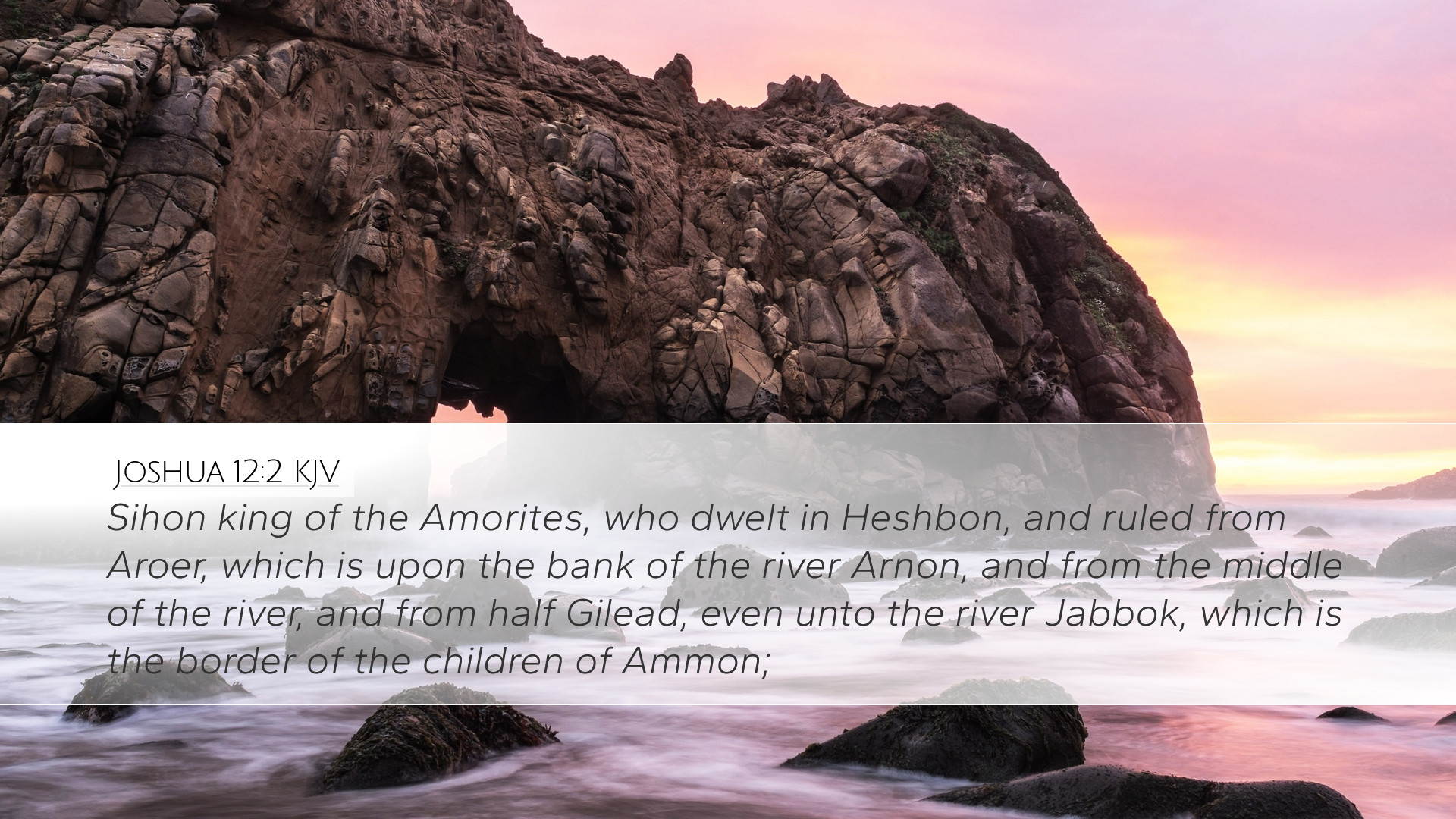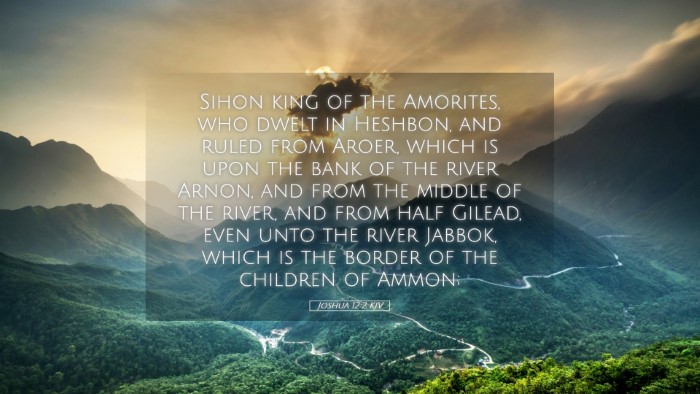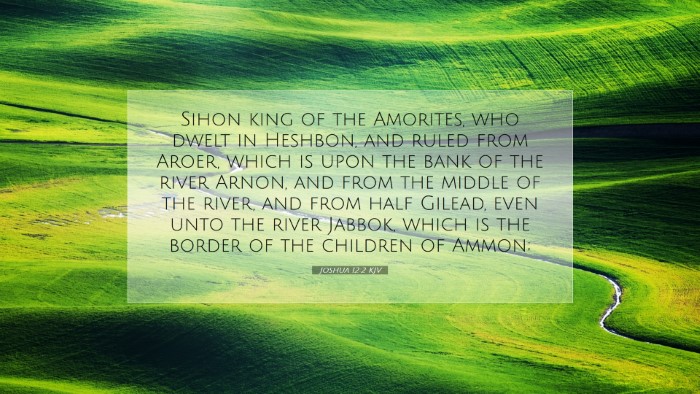Commentary on Joshua 12:2
Introduction
Joshua 12:2 states:
"Sihon king of the Amorites, and Og king of Bashan, which was the remnant of the giants, that dwelt at Ashtaroth and at Edrei."
This verse serves as a conclusion to the conquests of Israel under Joshua's leadership, summarizing the victorious battles against certain key kings and their territories. The significance of these events lies not only in the physical victories but also in their theological implications, which are explored in various public domain commentaries.
Overview of the Kings Mentioned
The focus on Sihon and Og is pivotal. They were not merely regional rulers, but they represented formidable forces opposing the Israelites’ divine mandate to conquer the Promised Land.
1. Sihon, King of the Amorites
Sihon’s kingdom was characterized by its strength and resistance against Israel. Matthew Henry notes:
“Sihon, whose strength lies in his high fortifications and valiant warriors, is here presented as a significant adversary, indicating the intensity of Israel's struggle for the land.”
2. Og, King of Bashan
Og's mention as the last of the giants is noteworthy. Clarke highlights:
“Og, king of Bashan, was infamous for his stature and strength; he symbolizes the last remnants of opposition to God’s people.”
Moreover, Barnes remarks:
“This reference to giants serves to illustrate the magnanimous nature of God’s deliverance, emphasizing that no foe, no matter how great, can stand against divine will.”
These references draw attention to the spiritual battle represented by physical confrontations, aligning with the greater narrative of Israel as God’s chosen nation.
Theological Context
The conquests described in Joshua serve to fulfill God’s promises made to Israel during the Exodus. These accounts reflect God’s sovereignty in granting victories over seemingly insurmountable odds.
Divine Sovereignty
Henry articulates a perspective on God’s orchestration of history:
“The triumph over these kings is an exhibition of God's might. He is in control of nations and territories, leading His people toward a fulfillment of the covenant.”
The Remnant of the Giants
The phrase "remnant of the giants" connects to deeper themes of fear and faith in Israel's journey. This is echoed in Clarke’s commentary:
“The remembrance of giants functions both as a warning and encouragement; it serves to remind the Israelites of God's power in helping them overcome such monstrous foes.”
This aspect connects back to the original fears of the Israelites when exploring the Promised Land, as seen in the reports from the twelve spies.
Applications for Today
Pastors and theologians can draw deeply from this passage by reflecting on the following:
- Faith over Fear: The Israelites’ victory shows that faith in God can conquer the greatest of fears. Just as the giants represented overwhelming challenges, so too can the challenges faced today be met with faith.
- Divine Assurance: God’s promise of victory, regardless of the apparent strength of opposition, provides assurance to believers as they face their own 'giants.'
- Commemoration of God’s Acts: The recounting of victories serves to strengthen faith across generations, reminding the faithful of God's unwavering support.
Conclusion
In examining Joshua 12:2 through the lens of various commentators, we see a multifaceted understanding of divine victory, human struggle, and the theological implications for believers today. This commentary underscores not only the historical context of Israel’s conquest but also the enduring truth of God’s power and faithfulness in the face of adversity.


